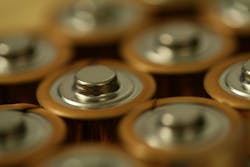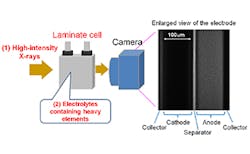Toyota Eavesdrops on Battery Chemistry in Search of Breakthroughs
Toyota stumbled through the gate with electric vehicles, shuttering several pure electric models because of poor sales and instead pouring money into hybrids and vehicles powered by hydrogen fuel cells. But the company has not stopped studying the fundamental battery tech used inside electric cars.
The Japanese automaker reported last week a new way of viewing the movement of particles that generate current inside batteries. That insight is critical to understanding the chemistry of lithium-ion batteries and could guide scientists to advances in storage capacity and durability.
Toyota’s new tool allows scientists to follow the path of lithium ions flowing within battery electrodes. Those movements are extremely hard to detect, but understanding them could prove useful in testing new battery materials and structures that extend the driving range of hybrids and electric cars.
Toyota developed the new technology with Japan’s Synchrotron Radiation Research Institute and the Institute of Physical and Chemical Research, or Riken. It used Riken's X-Ray facility to test the procedure.
Toyota also said that the observation method will give scientists a window into “the behavior of Li-ions in the electrolyte under the same environment and conditions as when it is being used.” There is also potential to better grasp how the batteries deteriorate after multiple charging cycles.
Toyota has largely stayed out of the market for electric vehicles, shutting down production of its last pure electric model in 2015, outpaced and outgunned by Japanese rival Nissan, which has sold around half of all electric vehicles on the road. Toyota has instead promoted fuel cell vehicles that consume hydrogen fuel.
The company plans to share its observation method with other electric vehicle makers, but it will not share its findings, according to a report from the Associated Press. It is also building a new electric vehicle that will enter the market in “several years,” the company told the Associated Press.
About the Author
James Morra
Senior Editor
James Morra is the senior editor for Electronic Design, covering the semiconductor industry and new technology trends, with a focus on power electronics and power management. He also reports on the business behind electrical engineering, including the electronics supply chain. He joined Electronic Design in 2015 and is based in Chicago, Illinois.



